Atlanta Rabbis Address Israel at War
Though they may differ in approach, current and emeritus leaders of local congregations acknowledge a responsibility to discuss Israel at a time of crisis.
Dave Schechter is a veteran journalist whose career includes writing and producing reports from Israel and elsewhere in the Middle East.
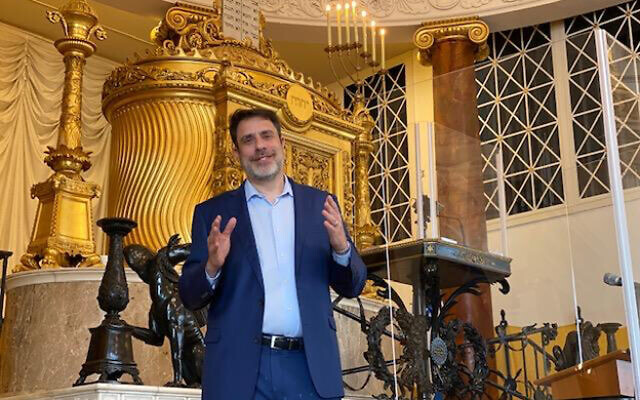
During the two weeks that Islamic groups rained rockets into Israel from Gaza and Israel’s air force responded with air strikes, Atlanta’s rabbis responded to an emotional Jewish community.
“This week has been extraordinarily hard for those of us with a deep love and connection with Israel,” Rabbi Lauren Henderson wrote May 14 to the members of Congregation Or Hadash “We are holding tremendous anxiety and fear for our loved ones living there, along with grief, despair, anger, frustration, and numbness.”
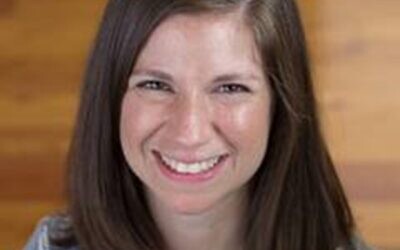
Rabbi Laurence Rosenthal of Congregation Ahavath Achim wrote May 12 to his congregants “with great concern and trepidation as the situation in Israel and the region is once again enveloped in violence,” reminding them to “keep the residents of our Holy Land in our prayers, sending strength with the hope that safety and calm will return to the communities of the land.”
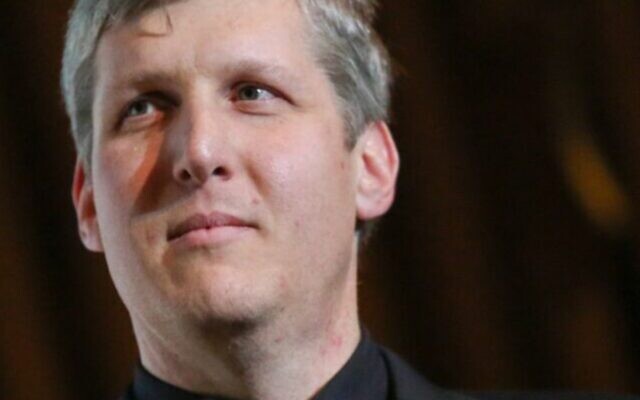
In recent years, numerous articles have been written about the reticence of some rabbis to discuss Israel, to avoid inflaming passions among congregants holding sharply different views. A 2013 study by the Jewish Council for Public Affairs found that: “Like Israelis, Jewish leaders – including rabbis – hold contrasting views on the value and ideal direction of the peace process, the true intentions of both Israeli and Palestinian leaders, the advisability of settlement expansion, and related matters. Rabbis with policy stances at variance with other Jewish leaders, their congregants, or the Israeli government can find such situations especially vexing and problematic.”
A retired Atlanta rabbi, who asked not to be quoted, acknowledged the challenge and pointed to the well-known — at least among rabbis — words of Talmudic scholar Rabbi Israel Salanter: “A rabbi whose community does not disagree with him is no rabbi. A rabbi who fears his community is no mensch.”

That sentiment was echoed by Rabbi Shalom Lewis, rabbi emeritus at Congregation Etz Chaim. “A rabbi has a sacred responsibility to use the pulpit to speak fearlessly to his community. Though clerical messages will diverge from rabbi to rabbi, to pander to caution and cowardice is moral malpractice. A rabbi cannot please all of the people all of the time, but to avoid critical issues and tiptoe around the bimah is shallow homiletics,” Lewis told the AJT.
Writing from Israel, Rabbi Emanuel Feldman, rabbi emeritus of Congregation Beth Jacob, said, “I do believe that a rabbi has a responsibility to speak out on behalf of the first Jewish state we have had in 2,000 years, even if, in some cases, it is not popular to do so. Especially when the anti-Semites of the world – including in the U.S. Congress – are all ganging up against her, and when the rocket attacks on Israel are motivated not by territorial considerations, but by hatred of the Jew.”
The rabbi traditionally has assumed the role of expert and advocate of a moral imperative for support and the survival of Israel. Where once there may have been a consensus about Israel, today there is concern about erosion. In the Pew Research Center’s recently released 2020 study of American Jews, 58 percent overall reported feeling emotionally attached to Israel. Broken down by age, two-thirds of those 65 and older reported that attachment, compared with slightly less than half of Jews under 30.
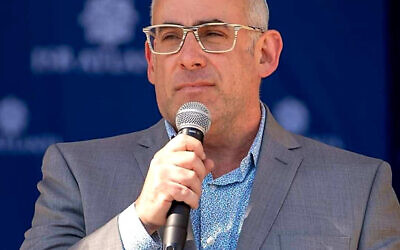
Rabbi Joshua Lesser, who soon will assume emeritus status at Congregation Bet Haverim, said: “There is an incredible minority of us who are recognizing the reality that more and more younger Jews and more and more progressive Jews of all ages are feeling less connected to the State of Israel being part of a contemporary Jewish identity. For some rabbis, they believe their responsibility to strengthen that connection. For other rabbis, I think it is about supporting people in becoming more informed, to be able to have opinions and an understanding of how to support, what to support based on information, not just on emotion or an imperative.”
Rabbi Peter Berg of The Temple displayed no reticence in his May 14 message to that congregation: “First, we must be abundantly clear that Israel has every right to defend herself from the hundreds of rockets that are deployed each day from Gaza into civilian neighborhoods. These attacks are not the result of so many Palestinians who want to live in peace, but of Hamas leadership who sponsors terror and whose charter calls for the destruction of the State of Israel. This stance never has nor never can be acceptable!”
Berg told the AJT: “I do not feel any pressure at any time when I speak proudly about Israel. As a rabbi, it is my responsibility to impart the values and teachings of our tradition. I can’t always make everyone happy, but I feel confident that I am doing the right thing . . . I am an audacious Zionist and I also care deeply about human rights for all. These are not mutually exclusive values – even as the world wants us to believe that they are.”
The rabbis’ thoughts also were with the innocents in Israel and in Gaza.
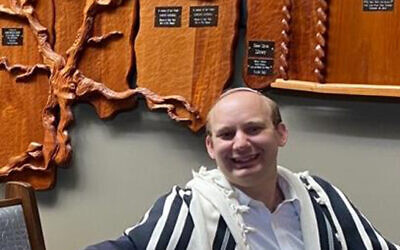
As Rabbi Daniel Dorsch wrote May 12 to the members of Etz Chaim: “As Jews, we join together with our world in mourning the loss of all innocent lives lost in the midst of this tragic conflict. We pray that the One who brings peace from the heavens may also soon bring an end to war and bloodshed, so that a great peace will embrace the whole world.”
Until then, or at least until a ceasefire takes hold, Berg expressed gratitude for technology. “It is imperative that, as we reach Shabbat, we take a moment to thank God for Iron Dome, which has intercepted hundreds of Hamas missiles … saving both Israelis and Palestinians. Iron Dome would not exist, were it not for the strong U.S.- Israel relationship, and the work of pro-Israel activists across the country who helped secure funding for this life-saving technology,” he wrote.
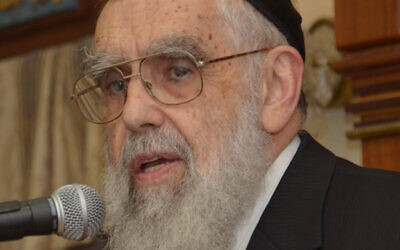
The spiritual leaders of Temple Emanu-El took that a step further in an action list included in a May 14 note to members. “Lobby. Many of our local elected officials have already made statements of support for Israel’s right to self-defense. It is really important that they continue to hear from us about this issue,” advised Senior Rabbi Spike Anderson, Rabbi Rachael Klein Miller and Rabbi Max Miller.
Rabbis also expressed concern for the emotional welfare of their congregants.
Though they find social media “very frustrating, and we’re not sure how effective it is,” Emanu-El’s rabbis advised congregants that, if they chose to engage about Israel, they should take breaks. “Your mental health is also important,” they wrote.
Henderson of Or Hadash suggested: “If you can, take some time to listen to music or move your body or do something that will help you to process all of what’s happening. Take some time away from the television set or social media – I promise you, they’ll be there when you get back.”
- Dave Schechter
- Community Partners
- Congregation Or Hadash
- Temple Emanu-El
- The Temple
- congregation etz chaim
- Congregation Ahavath Achim
- Jewish Council for Public Affairs
- Israel
- Rabbi Lauren Henderson
- Rabbi Laurence Rosenthal
- Rabbi Shalom Lewis
- Congregation Beth Jacob
- Rabbi Emanuel Feldman
- Rabbi Joshua Lesser
- Rabbi Peter Berg
- Rabbi Daniel Dorsch
- God for Iron Dome
- Rabbi Spike Anderson
- Rabbi Rachael Klein Miller
- Rabbi Max Miller
- Rabbi Israel Salanter
- News



comments